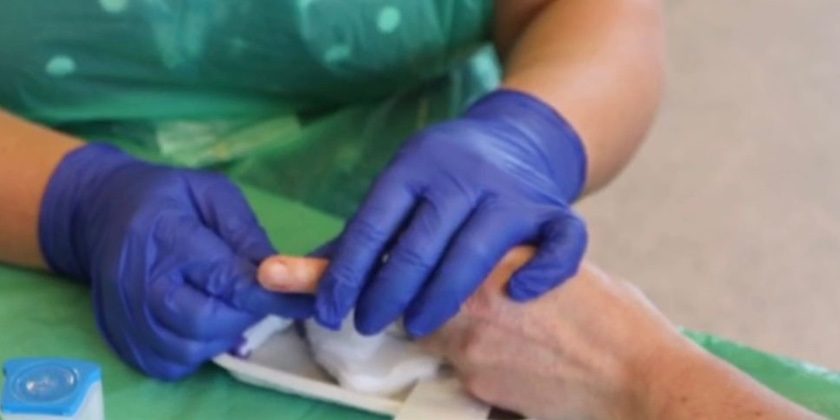Community testing and treatment key to global hepatitis c elimination efforts, say health officials

Testing and treating patients for hepatitis c when they receive methadone treatment could be the key to meeting the global target of eliminating the disease by 2030, research from Public Health Wales and the University of Dundee has revealed
The study found that nurse-delivered hepatitis C testing at community pharmacies made treatment more accessible and cure more likely, relative to conventional care, for people who use drugs.
This model is well suited to smaller pharmacies and is an important strategy for engaging this vulnerable patient group, the study found.
The Principal Investigator for Wales was Dr Brendan Healy, Microbiology and Infectious Disease Consultant Public Health Wales, said: “Hepatitis C is a leading cause of liver disease and having additional strategies and testing options means more patients can be screened and receive treatment to limit this damage.
“Bringing the test to the patient in these situations is more beneficial than expecting the patient to seek the test themselves and the study was able to show “the benefit to offering testing in an environment the patient is comfortable with, working alongside a pharmacist with whom they have a relationship.
“Treating and eliminating hepatitis C is good for the individual but also good for society as a whole as treatment is highly cost effective, reduces pressure on the NHS from the complications of infection, protects scarce resource (such as hospital care and liver transplant) and also reduces the risk of onward transmission.”
Hepatitis C is inflammation of the liver caused by a blood-borne virus commonly transmitted via injection drug use. Left untreated it causes liver cirrhosis and cancer. There are 56 million people infected globally, with 1.5 million new cases and 290,000 deaths every year.
However with highly accurate diagnostic tests and efficient treatment more than 95% of cases are now cured, the World Health Organisation has set a target to eliminate hepatitis c as a public health threat by 2030.
“The tools to achieve elimination of hepatitis C as a public health threat are broadly known,” said Dr Christopher Byrne, from the School of Medicine at the University of Dundee.
“However, recent research has suggested that the 2030 target may be missed due to bottlenecks in linkage to care for key affected patient groups, like people who use drugs.
“Our study is the first to implement nurse-led point-of-care testing – with results available on the same day – and treatment for hepatitis c in community pharmacies.
“Implementing models of care which bring hepatitis c testing and treatment into venues frequently used by people who use drugs can help to reduce the barriers to healthcare engagement, which is illustrated by the results of the trial.
“The novelty of this research is that it provides evidence that engaging at-risk individuals and curing them of their infection is feasible and safe in community pharmacies, with little need for extra hospital visits, and that community pharmacists can play an important role in hepatitis c care.”
The study aimed to understand if using nurses to deliver point-of-care testing for hepatitis c in community pharmacies led to more people in receipt of methadone and other opioid substitution therapies achieving a cure relative to conventional care.
To do so, 40 pharmacies in Wales, Scotland, and Australia were randomised to either the new pathway or conventional care.
The rationale was that there is a critical need to simplify care pathways for hepatitis c to achieve elimination of the virus as a public health threat, and pharmacies offer a straightforward and familiar route to healthcare engagement for people who use drugs.
Dr Byrne continued, “With fewer than ten years remaining to meet the WHO target of eliminating hepatitis c as a public health threat, substantial efforts are required to improve diagnosis and treatment of the virus among key affected patient groups, such as people who use drugs.
“As policy makers and health service commissioners evaluate their elimination efforts to date and consider the current trajectory toward the 2030 targets, this study provides an additional useful approach to improving hepatitis c outcomes for people who use drugs.”
The research is published in the journal Alimentary Pharmacology and Therapeutics and was awarded the top-ranked clinical research prize at the International Network on Hepatitis and Health in Substance Users (INHSU) 2021 meeting, a prestigious conference in the field.
The trial was carried out by Tayside Clinical Trials Unit, in collaboration with the Burnet Institute Melbourne and Public Health Wales. It was funded by AbbVie, who also provided medication for the trial, with support from Genedrive PLC, who supplied the point-of-care diagnostic devices.
Spotted something? Got a story? Email [email protected]












